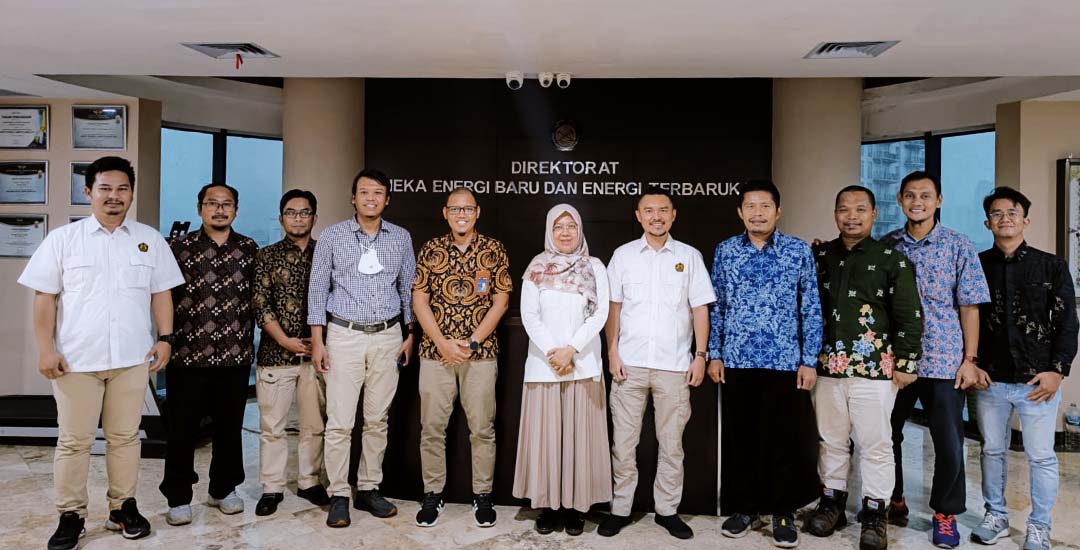
Envidata and PLN IP UBP Priok Collaborate with the Ministry of Energy on HRS Licensing
EnvidataID, Jakarta – The development of electric and hydrogen-powered vehicle technology is increasingly rapid, in line with global efforts to reduce greenhouse gas emissions. Hydrogen Refueling Stations (HRS) or Hydrogen Fuel Filling Stations (SPBH) as supporting infrastructure are very crucial. However, the construction and operation of HRS cannot be arbitrary, because it involves new technology and potential risks that need to be managed. Licensing to establish and operate HRS is a complex process and involves various related agencies. This is because hydrogen is an alternative fuel that is still relatively new and has special characteristics that are different from conventional fuels.
Along with the moment of the construction of the first Hydrogen Refueling Station in Indonesia by PT PLN (Persero), PT Envidata Inovasi Indonesia (EnvidataID) and PLN Indonesia Power UBP Priok were given the responsibility to prepare regulations and permits related to HRS. In the process, EnvidataID conducted an audience with the Directorate of New, Renewable Energy and Energy Conservation (EBTKE) of the Ministry of Energy and Mineral Resources (ESDM). In the audience meeting, EnvidataID was represented by Rudatin Windraswara, S.T., M.Sc, Arief Marsudi Harjo, S.Kel, M.Si, and Imam Eko Setiawan, S.Hut, M.Sc., Ph.D.
Licensing and Regulations to Pay Attention to
HRS licensing and regulation are generally very specific and vary from country to country, and even from region to region within a country. Some aspects that are usually regulated include:
- Safety standards: There are specific standards related to the design, construction, operation, and maintenance of HRS to ensure the safety of workers and the surrounding community. These standards cover aspects such as material selection, leak detection systems, fire extinguishing systems, and emergency procedures.
- Risk assessment: Prior to operation, HRS must undergo a comprehensive risk assessment process to identify potential hazards and establish appropriate mitigation measures.
- Environmental permits: HRS construction requires environmental permits that ensure that HRS operations do not have a negative impact on the environment.
- Waste management: HRS generates certain wastes that need to be managed properly in accordance with applicable regulations.
- Spatial planning permit: The location of HRS construction must be in accordance with the regional spatial plan and must not disrupt the function of the surrounding area.
- Physical protection: HRS must be equipped with adequate physical security systems to prevent vandalism or sabotage.
In general, the permits required include:
- Building Construction Permit (IMB): Just like other buildings, the construction of HRS requires an IMB issued by the local government.
- Suitability Test (UTK): After construction is completed, HRS must undergo a suitability test to ensure that all facilities and equipment meet the established safety and operational standards.
- Environmental Permit: Given the potential environmental impacts that may arise from HRS operations, an environmental permit is a very important requirement.
- Operational Permit: This permit is issued by the relevant agency after HRS is declared fit to operate and meets all other licensing requirements.
Why is HRS Licensing So Complex?
- Emerging Technology: Hydrogen technology is still developing, so regulations and standards are constantly being updated.
- Safety: Hydrogen is a flammable gas, so safety is a major concern in HRS licensing.
- Environment: The environmental impacts of hydrogen production and use need to be studied in depth.
- Infrastructure: The development of supporting infrastructure such as hydrogen distribution networks also requires careful planning.
Licensing and regulation of Hydrogen Refueling Stations are very important to ensure the safety, security and sustainability of the hydrogen industry development.
Source: envidata.id

